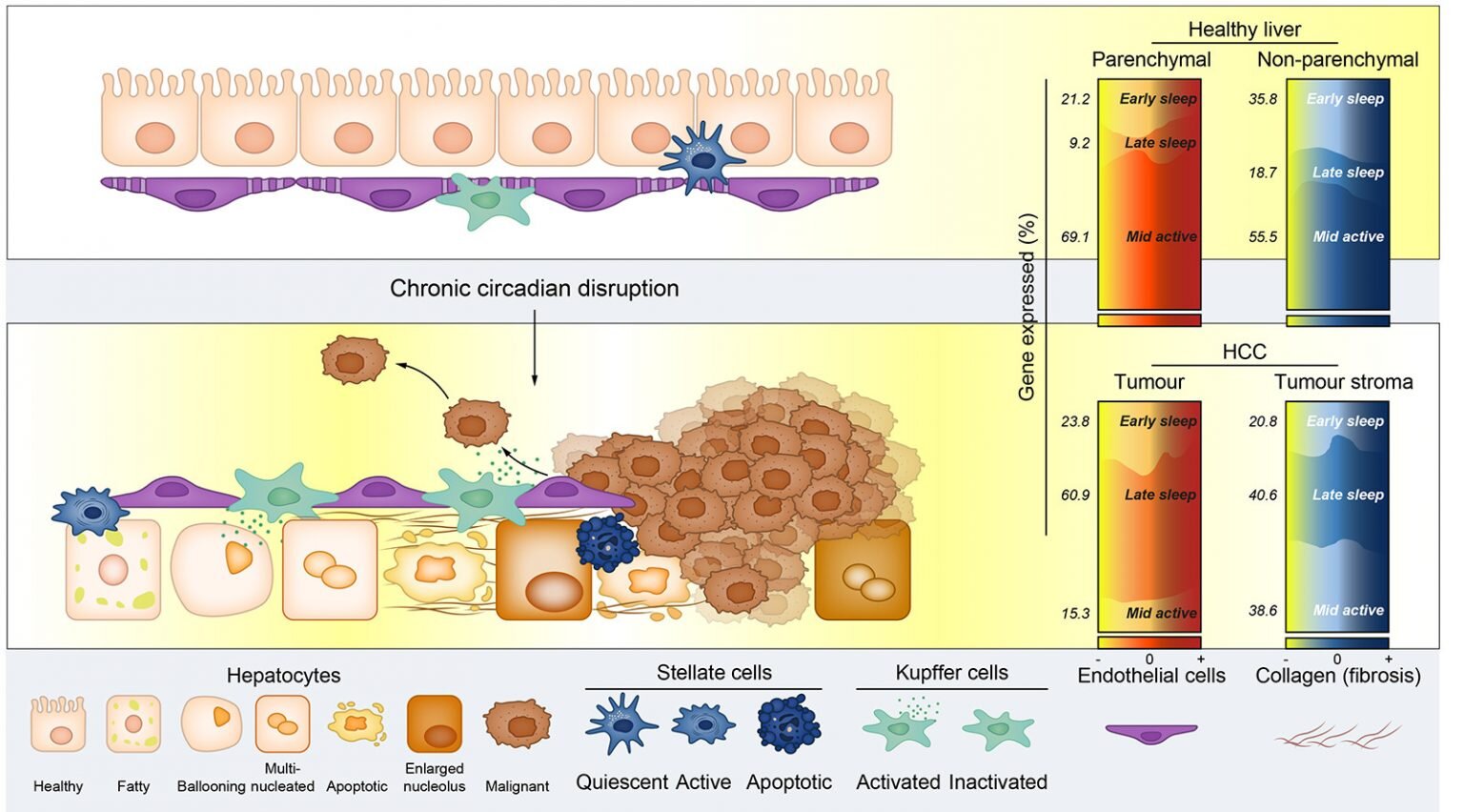Chronic jet lag can increase the risk of liver cancer for humans, a new study has shown. While people typically associate cancer with chemicals like tobacco and radiation, chronic circadian dysfunction has also been linked to liver cancer risk. The study used humanized mice and found that those subjected to simulated chronic jet lag had a shorter lifespan, increased cirrhosis and jaundice, and developed liver cancer. Returning the mice to a normal circadian rhythm slowed down tumor development and prevented metastasis, indicating that disrupting the circadian rhythm can be a human carcinogen. The findings raise awareness about cancer risk for people working night shifts or travelling across time zones.
More information:
Jennifer Padilla et al, Circadian dysfunction induces NAFLD-related human liver cancer in a mouse model, Journal of Hepatology (2023). DOI: 10.1016/j.jhep.2023.10.018
Source link
